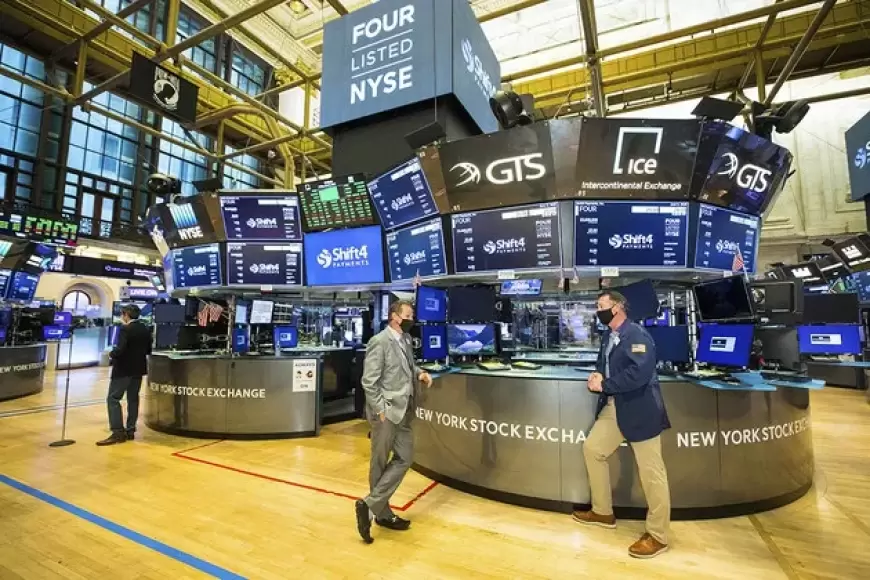Global Markets: European and Japanese Shares Near Record Highs Despite China Rate Cut Impact
European and Japanese Markets Hold Strong as Investors React Cautiously to Chinese Rate Reduction

On Tuesday, European shares stayed close to all-time highs, with the STOXX 600 benchmark remaining steady but still less than 1% away from its peak hit in early 2022. Meanwhile, Japan's Nikkei index pulled back from its recent flirtation with its all-time high from 1989, closing 0.3% lower.
Futures for the S&P 500 dipped 0.3%, despite the index already being in uncharted territory.
The European Central Bank (ECB) released data showing that negotiated wage growth across the euro area slowed to 4.5% in the final quarter of 2023, down slightly from the previous quarter's record high of 4.7%. However, this data had little impact on market movements.
Germany's 10-year Bund yield fell by 2 basis points to 2.38%, while the euro edged 0.2% higher against the dollar, reaching $1.0799.
The euro zone's benchmark yield has risen by approximately 35 basis points since the beginning of the year, reflecting changes in inflation expectations and economic data worldwide.
Peter Schaffrik, chief European macro strategist at RBC Capital Markets, commented, "When you look at the bigger picture, we’ve put a tremendous amount of mileage behind us." He noted that the markets are now closer to fair value compared to the beginning of the year, with expectations aligning more closely with central bank policies.
Markets anticipate around 100 basis points of rate cuts from the Federal Reserve and slightly more from the European Central Bank this year. However, better-than-expected economic data has been positive for stocks.
On Tuesday, British lender Barclays saw a 4% rise in its shares after publishing earnings and outlining plans to boost its share price. Similarly, Walmart gained in pre-market trading after announcing its earnings and plans to acquire smart-TV maker Vizio.
In other market moves, Discover Financial shares surged 13% following Capital One's announcement of its planned $35.3 billion acquisition of the credit card issuer.
China's five-year loan prime rate was lowered by 25 basis points to 3.95%, surpassing economists' forecasts of cuts ranging from five to 15 basis points. However, leaving one-year rates unchanged suggests Beijing's selective approach to policy easing.
The Aussie dollar, often seen as a proxy for China's economic outlook, remained largely unchanged, while iron ore futures, sensitive to Chinese construction demand, declined by 3%.
David Chao, global market strategist at Invesco, noted that the rate cut was the largest seen for the five-year loan prime rate. However, he highlighted that leaving one-year rates unchanged indicates Beijing's cautious stance on policy adjustments.
The yuan initially dipped to its lowest level in three months before stabilizing in European trading.
Ten-year U.S. Treasury yields, which rose by 10 basis points last week, dropped by 2 basis points to 4.27% after returning from a one-day holiday. The dollar remained strong, staying above 150 yen.
In commodity markets, Brent crude futures fell by around 1% to $82.76 per barrel, while gold rose by 0.46% to $2,026.7 per ounce. Soft commodities had a mixed start to the week, with wheat futures dropping to three-month lows due to ample Black Sea supplies, while short-covering lifted soybean futures to one-week highs.
Also Read: Foreign Direct Investment in China Hits 30-Year Low































































